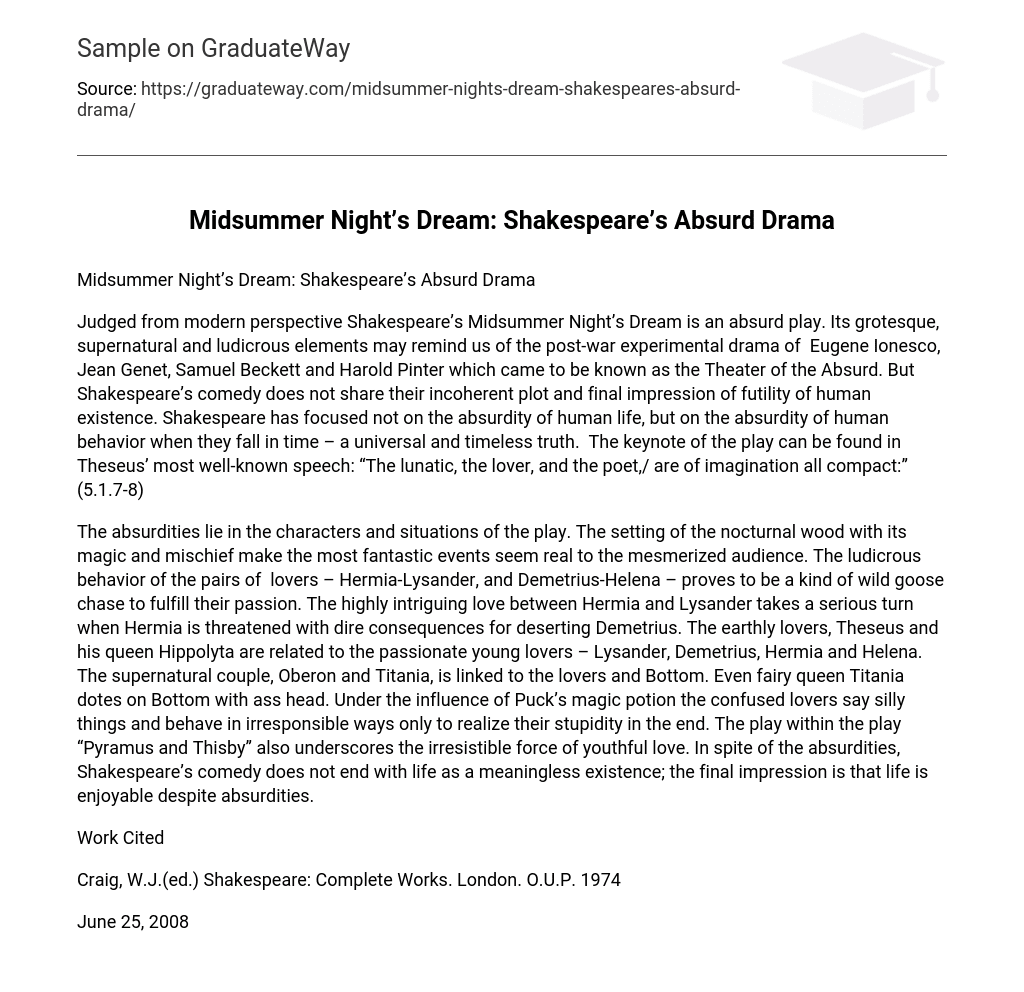Judged from modern perspective Shakespeare’s Midsummer Night’s Dream is an absurd play. Its grotesque, supernatural and ludicrous elements may remind us of the post-war experimental drama of Eugene Ionesco, Jean Genet, Samuel Beckett and Harold Pinter which came to be known as the Theater of the Absurd. But Shakespeare’s comedy does not share their incoherent plot and final impression of futility of human existence. Shakespeare has focused not on the absurdity of human life, but on the absurdity of human behavior when they fall in time – a universal and timeless truth. The keynote of the play can be found in Theseus’ most well-known speech: “The lunatic, the lover, and the poet,/ are of imagination all compact:” (5.1.7-8)
The absurdities lie in the characters and situations of the play. The setting of the nocturnal wood with its magic and mischief make the most fantastic events seem real to the mesmerized audience. The ludicrous behavior of the pairs of lovers – Hermia-Lysander, and Demetrius-Helena – proves to be a kind of wild goose chase to fulfill their passion. The highly intriguing love between Hermia and Lysander takes a serious turn when Hermia is threatened with dire consequences for deserting Demetrius. The earthly lovers, Theseus and his queen Hippolyta are related to the passionate young lovers – Lysander, Demetrius, Hermia and Helena. The supernatural couple, Oberon and Titania, is linked to the lovers and Bottom. Even fairy queen Titania dotes on Bottom with ass head. Under the influence of Puck’s magic potion the confused lovers say silly things and behave in irresponsible ways only to realize their stupidity in the end. The play within the play “Pyramus and Thisby” also underscores the irresistible force of youthful love. In spite of the absurdities, Shakespeare’s comedy does not end with life as a meaningless existence; the final impression is that life is enjoyable despite absurdities.
Work Cited
Craig, W.J.(ed.) Shakespeare: Complete Works. London. O.U.P. 1974
June 25, 2008





